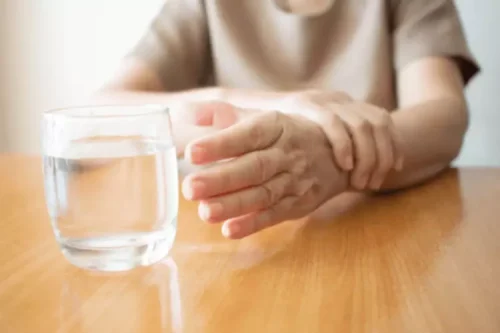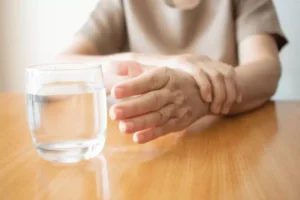
Before you begin detox, you’ll undergo an initial assessment and screening tests for other medical conditions. Your doctor will use this information to help minimize your risk for drug interactions or other complications during detox. Talk to a doctor or other medical professional for a recommendation. You can also search for a treatment center close to where you live. It’s a free online tool provided by the Substance Abuse and Mental Health Services Administration.
Behavioral Therapy

However, we believe in providing accessible and accurate information to reduce the harm that can occur when using. Get in touch with therapists who specialize in helping people stay in recovery to ensure long-term success. Rehab programs have a daily schedule to keep you focused on recovery. You’ll likely wake up early, eat together, and participate in therapy sessions and activities.
Pharmacological Interventions: The Quest for a Meth Addiction Medication
Its effects are similar to those of other stimulant drugs, such as cocaine. However, consistently using meth damages the brain cells that produce dopamine, which can make it harder for the person to achieve the same high over time. As a result, the person has to take the drug more frequently, consume increasingly higher doses, or constantly change the way they take it, in order to achieve the same effect.
- The treatment regimen in the trial combined two medications that have been studied separately for treating methamphetamine addiction with limited success.
- It’s also dangerous to combine meth with other stimulants, like cocaine.
- Practicing relapse prevention and management techniques can help improve your chances of recovery in the long term.
SUD diagnosis
“For heroin users, there’s methadone, there’s suboxone. I just wonder why we haven’t researched treatments for this drug yet,” she says. Researchers say overdose deaths linked to meth increased fourfold over the last decade. “Patients who are struggling with meth use disorder should definitely have a conversation with their treating physicians to consider whether this option is something they should try,” Trivedi said in a statement. “It’s progress and it’s quite significant,” says Dr. Nora Volkow, director of the National Institute on Drug Addiction, which funded the two-year clinical trial involving roughly 400 patients. Take our free, 5-minute substance use self-assessment below if you think you or someone you love might struggle with substance addiction. The evaluation consists of 11 yes or no questions that are intended to be used as an informational tool to assess the severity and probability of a substance use disorder.

If someone is showing signs of overdosing on meth, it is crucial to call 911 immediately. Learn more about the differences between addiction and dependence. Jessica Martinez began using the drug when she paid her way through college as a sex worker.
The study was funded in part by NIH’s National Institute on Drug Abuse (NIDA). Results were published on January 14, 2021, in the New England Journal of Medicine. For people with severe physical dependence on meth, detox can take longer and may occur at an inpatient program. These programs are best for meth abuse mild to moderate cases of meth addiction. They offer help from a drug abuse counselor in an outpatient setting.


Meth produces more reward chemicals than your brain can fully handle. It sends your brain’s dopamine levels into the stratosphere, so to speak. In everyday language, that means most of the meth will leave your system before the day is done.
- The treatment helped 13.4% of patients with their addiction, compared with 2.5% of the placebo group.
- Studies have found that CBT is effective at reducing meth use, even after only a few sessions.
- Participants were considered to have responded to treatment if at least three of four urine screens were negative.
- The new strategies are being implemented amid a dramatic rise in methamphetamine-related deaths, which roughly tripled between 2015 and 2019, according to the National Institute on Drug Abuse.
- Another medication for meth addiction, ibudilast, may reduce some of the pleasurable effects of meth.
- The research, published today in The New England Journal of Medicine, was conducted at multiple sites within the National Institute on Drug Abuse Clinical Trials Network (NIDA CTN).
- The trial had a “number needed to treat” of nine, which means that nine patients would have to be given the medications in order for one to have a positive response.
- Then, those in the placebo group who did not respond initially were randomized again, either to stay on the placebo or to start the treatments.
- 10-Hz repetitive transcranial magnetic stimulation of the left dorsolateral prefrontal cortex reduces heroin cue craving in long-term addicts.
- Despite the skyrocketing use of meth, a stimulant particularly common in the western U.S., there’s no medication currently approved to treat meth overdose or aid in long-term recovery.
These programs provide tangible incentives, such as cash prizes, to stop meth use. For years, addiction specialists have relied on a handful of tried-and-true methods to combat meth addiction. Let’s take a closer look at these conventional approaches and their limitations. Methamphetamine, or meth, is a powerful stimulant that hijacks the brain’s reward system. It’s like a tornado of euphoria that leaves destruction in its wake. Users experience an intense high, followed by a crushing low that keeps them coming back for more.